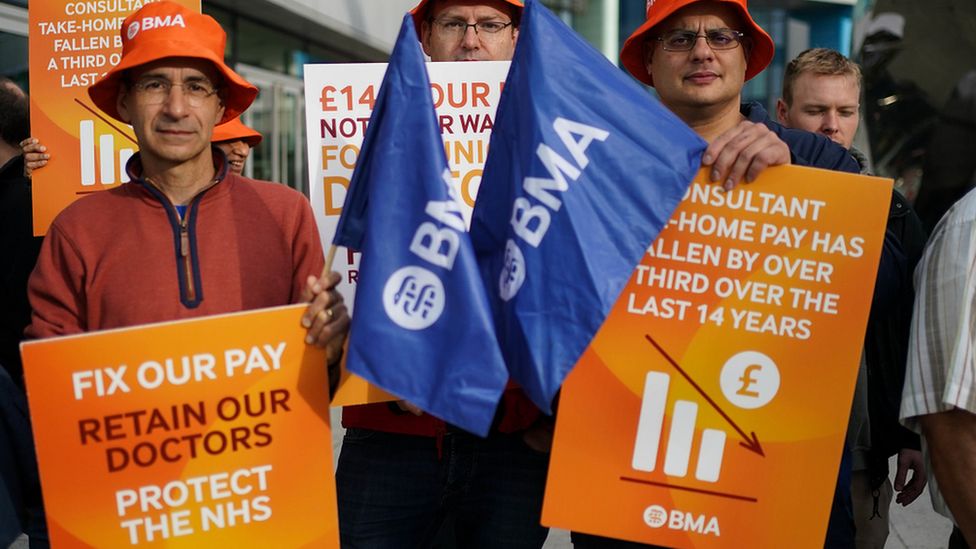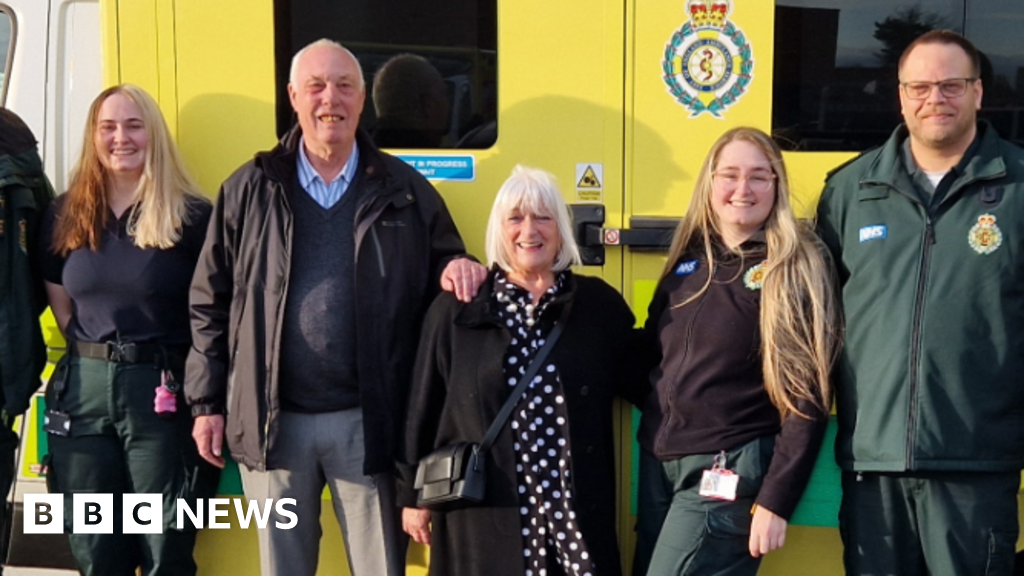 Image source, PA Media
Image source, PA Media
Junior doctors and consultants joined a picket line at London's Queen Elizabeth Hospital earlier this month
The government has agreed to meet consultants in the hope of resolving a dispute which has led to strikes in England.
The British Medical Association (BMA), which represents consultants, said it would not call any more strikes until November to allow time for talks.
The government says wage rises are not up for negotiation - but it has not ruled out other incentives.
A wave of NHS strikes has led to more than a million appointments and operations being rescheduled.
Consultants and junior doctors in England staged a three-day joint strike at the start of October.
Many health bosses have implored both sides to enter talks, with concerns raised over the prospect of further industrial action during the winter period.
A Department of Health and Social Care spokesperson said it would meet the BMA following its commitment to pause strike action, but consultants had already received a "fair and reasonable pay rise" which had been recommended by the independent pay review body, "alongside generous reforms to their pensions - the BMA's number one ask".
This year, consultants have been given a 6% pay rise by the government - as recommended by the independent pay review body.
It brings their basic salary to between £93,00 and £126,000 depending on experience. But consultants also earn extra - about a quarter more - for things such as being on-call, additional hours and bonuses.
However, the 6% pay rise was rejected by the BMA with the union indicating that a figure around 12% would be acceptable, as this would restore pay that has been lost once inflation is taken into account.
Dr Vishal Sharma, chair of the BMA consultants committee, said it was "good to see the government is willing to come to the table" but added the pay review body needed reform to "correct the losses that consultants have experienced that have resulted in the current workforce crisis".
"We will be expecting to discuss and explore other solutions in the forthcoming talks," he added.
It is thought the refusal of the government to discuss "headline pay" may prove a stumbling block in the talks, but the NHS Confederation representing employers said the latest development was a positive step in the right direction.
 (1).png)
 1 year ago
12
1 year ago
12













